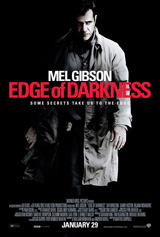Mots Justes is going on hiatus. “Going on hiatus?” you might ask. “You haven’t posted in three weeks!” You’re right. You’re absolutely right. And that’s why I have to take a break and reassess.
I’ve known I have to do this for a quite awhile now. I’m freelancing, with large swaths of “free” time that I feel like I have to fill up. So I start projects. This blog. Another blog. A nascent idea for yet another blog. A photo-a-day project and a cookie-a-week project. Meanwhile, I’m constantly behind—or flaking altogether—on my paid gigs, and worse, I’m not writing my fiction. I’m doing everything around writing but the actually writing itself.
I held out this long because there were legitimate reasons to continue. But frankly, my vision for the blog has been too ambitious, and I have to prioritize the activities that are going to serve my writing best.
I’ll be ceasing Mots Justes’ daily tweets as well, although I haven’t been able to keep on those for awhile either. I learned a lot and made a lot of connections through the research required for that news feed, but it was a giant time suck too hard to keep up with when I’m actually going into an office, even if it is just a couple of days a week.
I don’t plan to shut down Mots Justes the blog or the Twitter feed completely. I may post the occasional writing-related column and tweet my writing-related activities. (I tweet my personal and film-related stuff at @annleee.) But Mots Justes can no longer be a daily commitment. I’ve decided that rather than reading about writing or even writing about writing, the best thing I can do for my writing is … write.
That’s probably the single best piece of advice I’ve come across and that you’ll read here: log off and write.
***
Still here? Okay, then, let’s talk about writing.
What’s been occupying my thoughts on writing lately has been blogging. Not the how-to type of blogging I’ve been doing on Mots Justes—nor news blogging nor gossip blogging nor fan blogging nor theme blogging—but personal blogging in which writers record what they observe, what they’re thinking about, what inspires them. It’s in this type of blogging that the future of writing lies, multimedia storytelling that a platform like Tumblr especially facilitates—journals or scrapbooks in which bloggers not only write about their lives but illustrate them with photos and videos and music. If a text or image or piece of audio touches a blogger, chances are it will touch a reader, too.
(The work I’ve read is mostly autobiography at this point, but I just know that someone somewhere is doing something really cool on a blog with fiction. If you know who and where, please share!)
Writers have always kept diaries and written letters. It’s just that now those same instincts are available for instantaneous public consumption, simultaneously encouraging more thought and less. Fleeting insight can now be permanently recorded, but it’s also published without context, consideration, the guiding hand of an editor.
Lately I’ve felt I need both—more thought and less. My writing can only benefit from paying more attention to my surroundings, observing my environment more closely, thinking about it and analyzing it. But I also need to obsess less about the actual writing, not be so precious about, well, the mot juste. I’m stifled by that, that everything has to be polished, publication-ready, and it’s an area I want to work on: experimentation—trying to be less staid in my writing and my thought.
I suppose this is supposed to happen in a writers notebook, but the instant gratification of the web is so tempting and satisfying; even experimental work is somehow legitimized by its availability to be read by someone else.
I guess what it comes down to is I need to do the work where it feels most relevant, write the stuff that speaks to me, follow my bliss, as it were. For now, that’s not on Mots Justes. At least not in the same way.
Now, go write!







